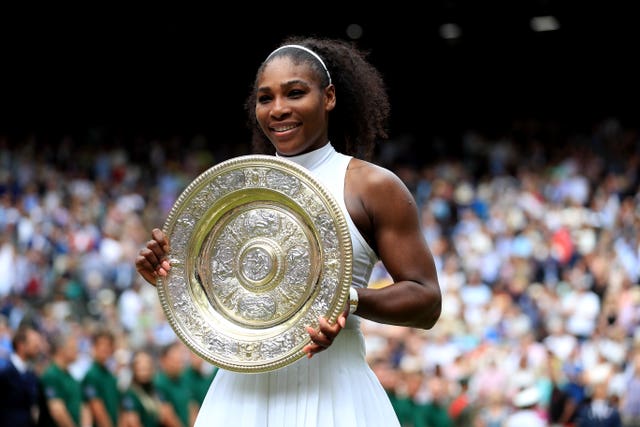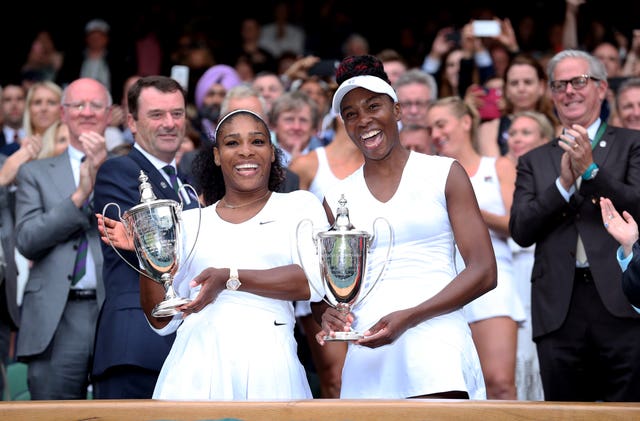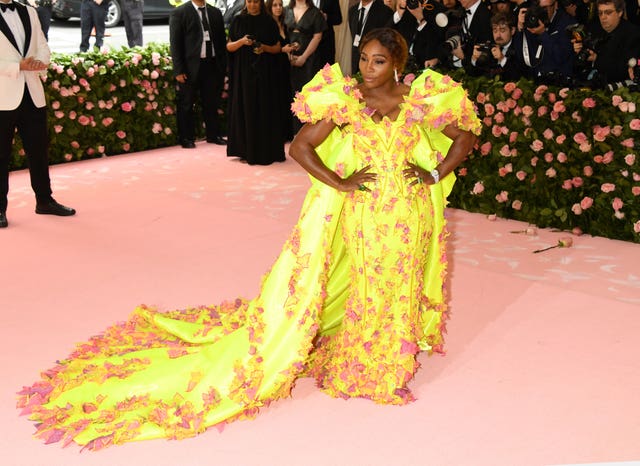
With the likely end of Serena Williams’ career comes the time to reflect on one of the most important figures in tennis history.
The emergence and subsequent dominance of Williams and sister Venus forced tennis to confront, not always willingly, its attitudes to race and strong women.
There has never been a tennis champion like Williams, and there may never be again. The 40-year-old, who lost in the third round of her swansong appearance at the US Open, is the owner of 23 grand slam singles titles, the most in the Open era, and 39 slam titles overall.

That she has achieved such success despite serious health problems, struggles with fitness and motivation and, most significantly, a year-long break to have her first child, makes her story all the more remarkable.
It is a story that has often been told but perhaps is still undersold. Tennis is very familiar with the narrative of the driven parent seeing the lucrative possibilities in a tennis career for their offspring but no one has done it better than Richard Williams.
And it is to the credit of all three of them that they remain close despite everything that has played out over the past two decades.
There is only 15 months between Venus and Serena, and the sisters’ relationship is at the centre of Serena’s life and career.

She delighted in being the spoiled baby of the family and followed Venus in everything, including picking up a tennis racket and learning the ropes on glass-strewn courts in Compton, California.
The dynamic has played out through their professional careers, with Venus leading the way but swiftly being overtaken by Serena, the younger sister’s determination to have things her way making her a ferocious and, at times controversial, competitor.
While Venus was the stately, calm presence on court, Serena gestured, roared, screamed – and won, beating opponents through sheer force of will when her tennis misfired.
Serena was the first of the pair to win a slam singles title, at the US Open in 1999, a couple of weeks short of her 18th birthday.
Honoring mom & dad 💙 pic.twitter.com/mgNTM52NfW
— US Open Tennis (@usopen) September 3, 2022
The excitement around the sisters was enormous but, as they turned into the dominant forces in the women’s game, tennis grew less welcoming.
Venus and Serena not only looked different, their brand of athletic power tennis shook up the sport and forced their rivals to try to match it.
‘Home’ support was far from guaranteed in America and the most shameful episode came in Indian Wells in 2001 when fans jeered Serena after suspecting foul play in Venus’ withdrawal ahead of a semi-final clash with her sister. Venus and Richard said they were racially abused in the stands.
The sisters boycotted the event for more than a decade and gossip about the outcome of matches between them being predetermined persisted for years.

The US Open final in 2018 will not be remembered as Serena’s finest hour but, looking around the stadium, the effect she has had on tennis was unmistakable.
This was not a picture of tennis as a white, middle class sport. The diverse crowd had come to worship at the altar of their queen and were so hostile in their reaction to umpire Carlos Ramos’ decision to issue three code violations that he had to be escorted off court prior to the presentation ceremony.
The defeat by Naomi Osaka was one of four slam finals Williams lost as a mother as she tried, and ultimately failed, to equal Margaret Court’s all-time record of 24 slam singles titles.
Serena’s tally is widely considered the more impressive, though, given 11 of Court’s titles came in Australia when the event was historically much weaker.

After her first title in 1999, Serena had to wait nearly three years for another, but two quickly became five as she swept all four slams between the French Open in 2002 and the Australian Open in 2003, dubbing her achievement the ‘Serena slam’.
Melbourne Park and Wimbledon would prove her most successful venues, winning seven titles at each followed by six at Flushing Meadows and three at Roland Garros.
She completed the Serena slam for a second time in 2014 and 2015, narrowly missing out on the calendar Grand Slam in 2015 when she fell to a shock loss against Roberta Vinci in the US Open semi-finals.
Past her 30th birthday, and after losing in the first round of a slam for the first time at the French Open in 2012, Williams turned to French coach Patrick Mouratoglou and began the most dominant period of her career, winning 10 slams in four-and-a-half years prior to the birth of daughter Olympia in 2017.

The previous decade had been much more up and down, with Williams’ successes interspersed with lengthy absences. In 2006, a mixture of injuries, depression and a loss of motivation saw her ranking drop to 139.
When she won the Australian Open the following year she was ranked 81, out of shape and reportedly on the verge of being dropped by Nike. Spurred on by her critics, she lost just three games to Maria Sharapova in the final.
Celebrations of her 2010 Wimbledon title turned sour when she badly cut her foot and subsequently suffered life-threatening pulmonary embolisms, putting her out of the game for nearly a year.
The pulmonary embolisms returned following a difficult birth, and what she achieved on the court subsequently was even more impressive given the life-threatening complications that rendered her bed-bound.

Away from tennis, Serena has always pursued her interests, particularly in fashion, philanthropic work in Africa and, more recently, her investment company Serena Ventures that has assumed increasing importance.
She and Venus founded the Yetunde Price Resource Center in memory of their murdered half-sister to help families affected by violence in Compton, while Serena has found a growing political voice on black and gender rights and, following the birth of Olympia, as a mother.
It is her desire to have a second child that has persuaded Serena that, a month short of her 41st birthday, the time has come to wave goodbye to a sport that will forever remember her as one of the greatest.


Comments: Our rules
We want our comments to be a lively and valuable part of our community - a place where readers can debate and engage with the most important local issues. The ability to comment on our stories is a privilege, not a right, however, and that privilege may be withdrawn if it is abused or misused.
Please report any comments that break our rules.
Read the rules here